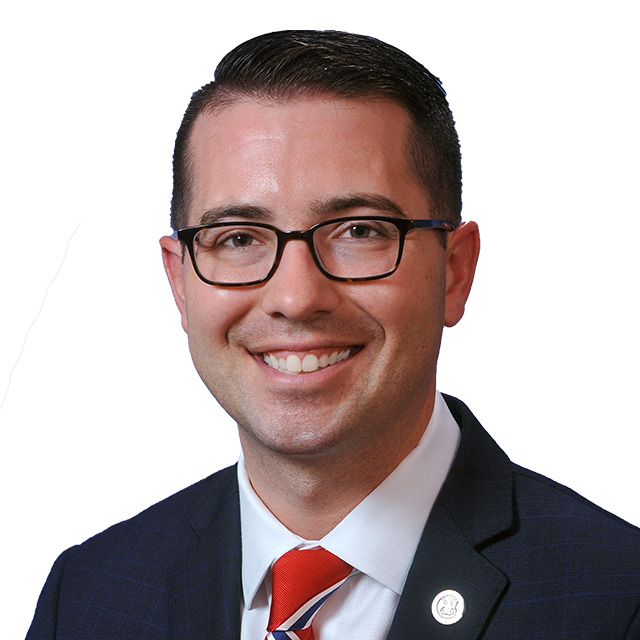Over the years since PASPA was repealed, lawmakers who took up the cause of gambling expansion have always hammered home the importance of educating their fellow lawmakers on what such expansion really entails. If a bill doesn’t get across the finish line in its first effort, the loss is still credited as a step toward educating the people who can vote the bill through the following year.
When that gambling expansion is done via voter referendum though, you can throw all thoughts of education out the window. If the feud between Prop 26 and Prop 27 in California has taught us anything, it is that appealing to the population has very little to do with teaching them what sports betting expansion in the state would really look like.

“Voter education versus lawmaker education is night and day,” said Sportradar’s Head of Government Affairs Brandt Iden. He would know, as he spent almost six years serving in the Michigan House of Representatives before taking his post with Sportradar.
“When you’re just marketing to the mass, and by that the entirety of the voting population in California, you sort of throw everything at the wall and see what sticks,” he explained. “You throw all of these different messages at the voters and some of them are going to resonate better than others.”
This is why Californians’ TVs are flooded with messages explaining how Prop 27 would help homelessness in the state or how it is championed by smaller tribes. Prop 26 focuses on the fact their measure keeps gambling funds in states while obfuscating the casino measure tied to the referendum.
Both measures are spending big bucks on these ads which, if anything, are creating confusion more than support. As spending exceeds $500 million across the two measures, both are polling at around 30% approval. Why keep spending when the outlook is looking increasingly grim?
“The best analogy that I can make is it’s sort of like a Cold War nuclear arms race” Iden explained. “When you see your opponents put in more money, you put in more money in an attempt to just block whatever they’re doing. So $10 million goes in on one side, you typically see $10 million coming in on the other side, and that’s just the laws of campaigning.”
Iden also admitted this spending is likely all for naught.
“All that money has done is create further voter confusion, and voters just don’t know what to believe. Even if they did support it, they really don’t know what the issue is that they’re voting for anymore. And that’s a tough position, but not unusual when you get two competing ballot initiatives on the same ballot. This is very common, not for sports betting, obviously, but when there are two similar initiatives in other states that have been on the ballot before, statistically, they both always fail.”
November is still a ways away, but as the writing increasingly appears to be on the wall that both Prop 26 and Prop 27 will fail, it is time to start thinking about what to do next. The industry will not be giving up on the massive market, but after campaigns packed with vitriol, sports betting could leave a sour taste in the mouths of California residents.
In theory, the two initiatives could gather signatures all over again and return to the ballot for another attempt in two years. If spending kept up at the same clip, that would be $1 billion invested with no guarantee of success the second time around.
“If both of these fail, one would think that cooler heads would prevail, these parties would come back to the drawing board and say, ‘Okay, what can we craft to then take to the legislature? Because I don’t think that the legislature would be opposed to passing something,” Iden suggested. As he sees it, there is a way to expand gambling without taking it to the voters again.
“What I’d like to see, and what I think could possibly come out of this is that both sides have said, ‘Look, we gave this a shot. We recognize what we had to do, we went before the voters we made our pitch we spent a tremendous amount of money. Let’s come together and see if we can find some compromise on some of these issues.’”
Commercial sportsbook operators and tribal casinos share quite a bit of common ground when it comes to what they want from sports betting. What has, and continues, to derail any sort of gambling expansion in the Golden State is feuding across a range of stakeholders, namely tribal casinos and California cardrooms. Still, Iden thinks other states have shown the profitability for everyone if they can find a solution.
“There’s going to need to be some time after a huge battle like this. If both of these fail, there always needs to be sort of a cooling-off period that occurs. I think you’re gonna see things kind of go quiet for a while and then I do believe that these parties could come together and reach a negotiated compromise that we’ve seen in places like Arizona, Connecticut, and I highlight Michigan, for obvious reasons, as being great examples of where tribal and commercial operators can work together.”
Perhaps this election season will teach Californians and California an expensive lesson that compromise is necessary to move forward. Perhaps this spending spree will turn around poor polling and get sports betting through in five weeks. Hedge your bets on that outcome though.













